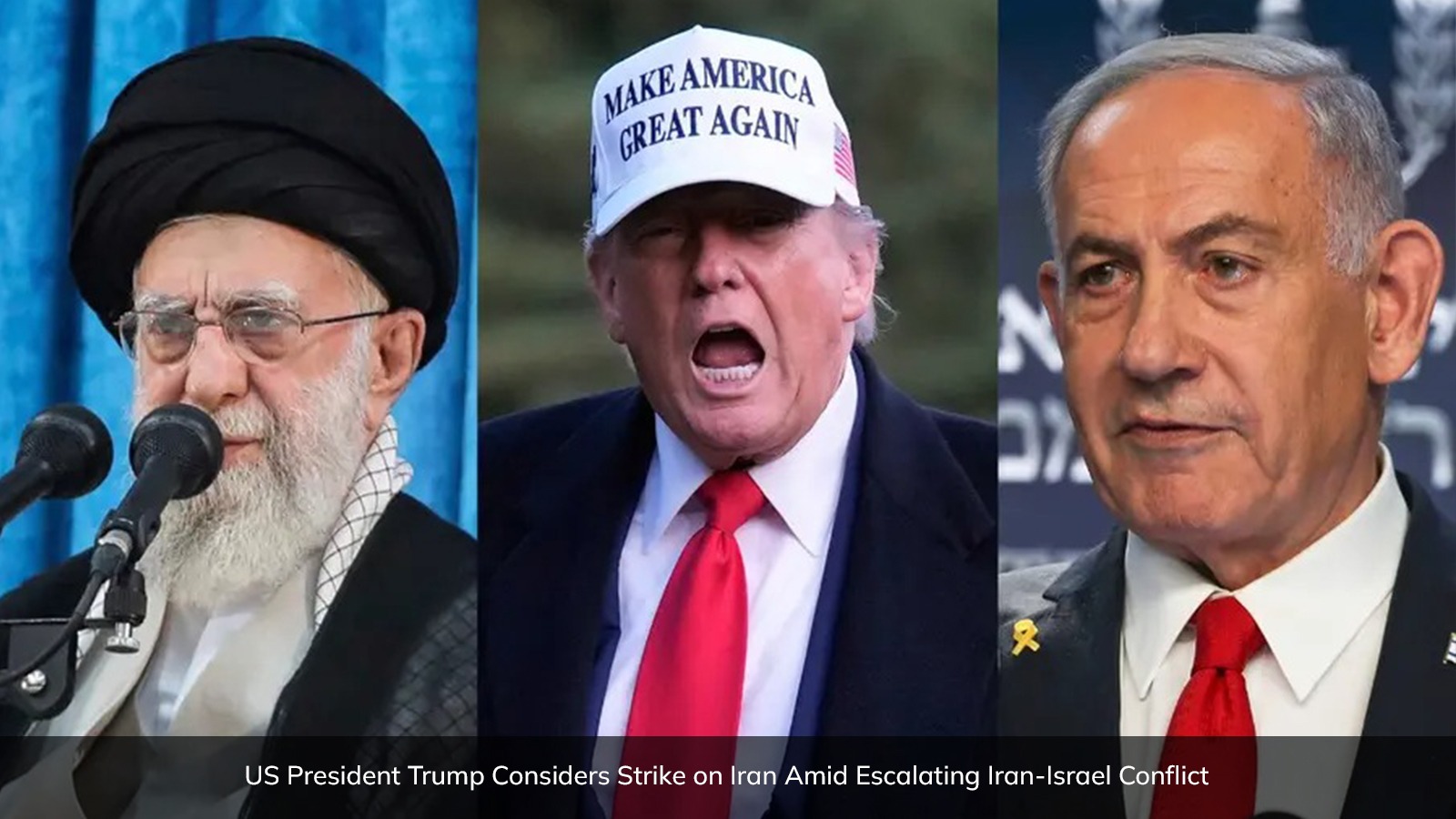The Iran-Israel conflict has reached a dangerous tipping point as US President Donald Trump deliberates the possibility of launching a military strike on Iran. As the conflict enters its seventh day, global attention is sharply focused on the rapidly evolving situation in West Asia.
What Triggered the Iran-Israel Conflict?
On 13 June, Israel launched a major airstrike on Tehran, targeting what it described as nuclear and military facilities. Iran responded with retaliatory strikes. The escalation marked the beginning of the latest phase of the Iran-Israel conflict, which has seen significant loss of life and regional destabilization.
Following the attack, Iran refused to attend a scheduled meeting on its nuclear program on 15 June. On 16 June, President Trump posted on social media, urging nearly 10 million residents of Tehran to evacuate, following heavy missile attacks by Israel on the Iranian capital.
US Position in the Iran-Israel Conflict
The United States has not directly joined Israel’s military actions. However, President Trump held a Situation Room meeting on 18 June to explore the possibility of a targeted US strike on Iran’s Frodo uranium enrichment facility.
On 19 June, the White House stated that Trump would take two weeks to make a decision, effectively providing Iran with a limited window to reconsider its nuclear activities. In the meantime, the US has deployed additional forces to the region, underscoring the seriousness with which it views the Iran-Israel conflict.
Global Reactions to the Iran-Israel Conflict
The Iran-Israel conflict has triggered widespread international travel warnings and evacuation orders. Countries such as the US, UK, Canada, France, Germany, Australia, Japan, Ireland, and Singapore have issued strict “Do Not Travel” advisories for both Iran and Israel.
China and Russia have begun evacuating their citizens. India has advised its nationals to leave Iran and avoid non-essential travel in Israel. Additional warnings have been issued by South Korea, Pakistan, Bangladesh, Malaysia, Azerbaijan, the Netherlands, and Italy.
Diplomatic Fallout
President Trump left the G7 meeting in Canada on 16 June. Although French President Emmanuel Macron suggested Trump may mediate the Iran-Israel conflict, Trump denied this claim and did not offer further details on his early departure.
In response, Iran has sought help from regional actors like Oman, Qatar, and Saudi Arabia to urge Trump to pressure Israeli Prime Minister Benjamin Netanyahu into accepting a ceasefire. Iran’s Supreme Leader Ayatollah Ali Khamenei has warned against any US military intervention in the Iran-Israel conflict.
Outlook: Where the Iran-Israel Conflict May Head
The ongoing Iran-Israel conflict has led to significant international concern. Widespread evacuations, severe travel advisories, and troop deployments suggest that governments globally are preparing for prolonged instability.
Although Trump has signaled caution, the situation remains unpredictable. A meeting between Iranian and European officials is scheduled for 20 June, which may offer a narrow opportunity to de-escalate the Iran-Israel conflict — provided a temporary ceasefire can be achieved.
Implications of the Iran-Israel Conflict
If diplomacy fails, the Iran-Israel conflict may lead to:
- A reduced foreign presence in the region
- Airspace restrictions and suspended humanitarian operations
- Lasting economic and operational disruptions
The world remains watchful as the Iran-Israel conflict continues to unfold, with serious implications for regional peace and global stability. MitKat’s AI-powered risk intelligence platform, datasurfr continuously monitors global risk events. Stay tuned for more updates.






